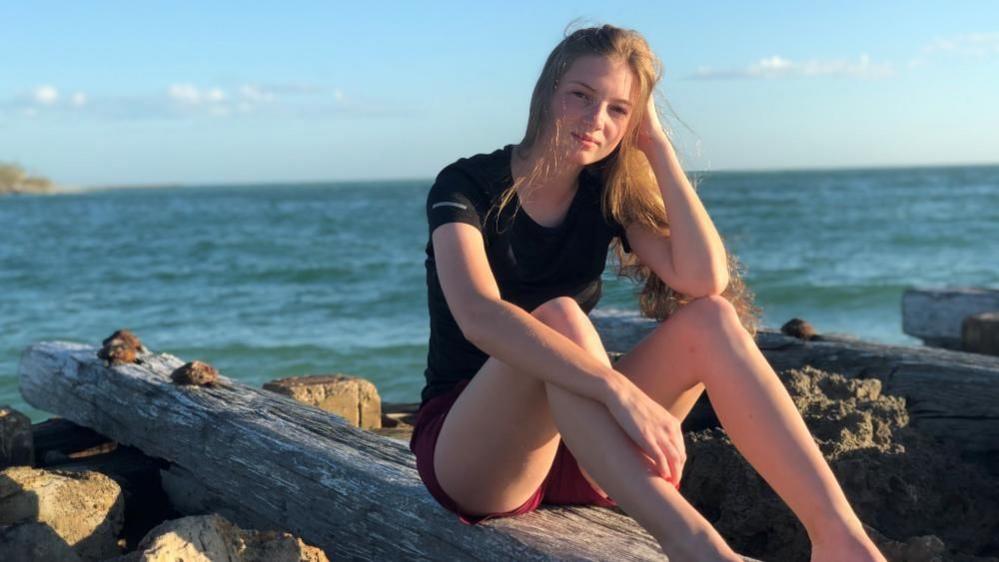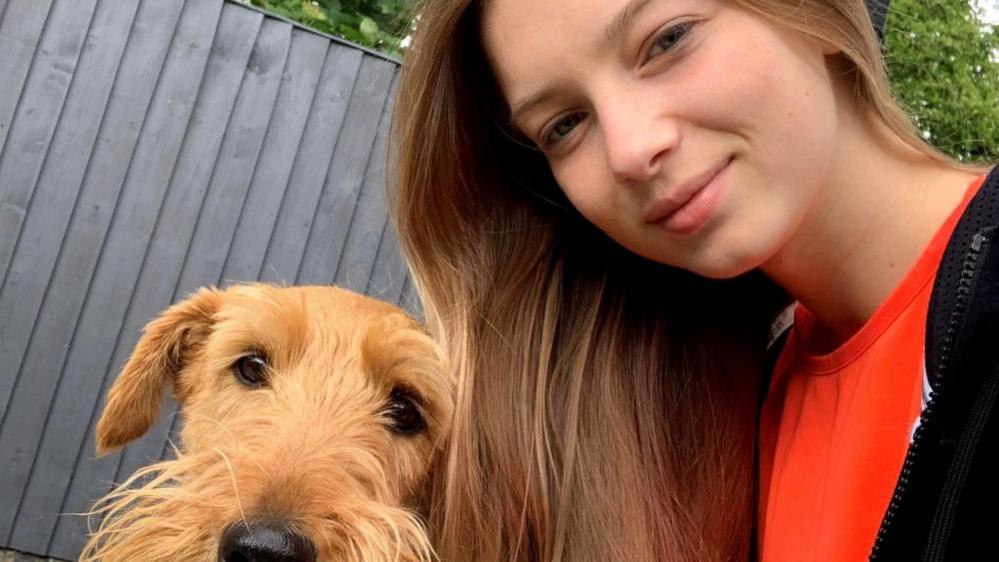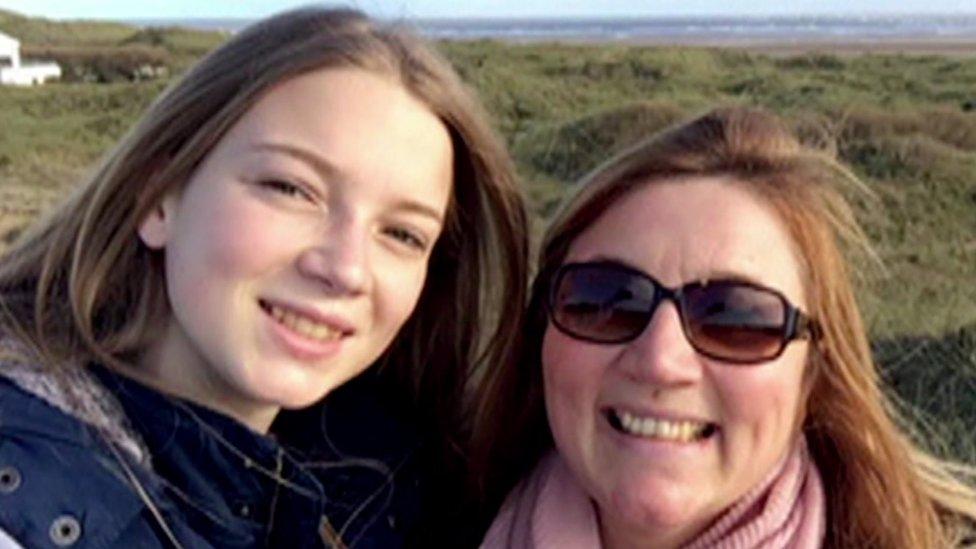Bereaved mum's call to help GPs spot kids' cancer

Isabel McEgan died from cancer following a year of GP visits with "strange" symptoms
- Published
A mum whose teenage daughter died of cancer has called for GPs to receive better training to help spot cancer symptoms in children and young people.
Amanda McEgan said her daughter, 19-year-old Isabel, from Merseyside, died in May 2020 from tumours discovered by chance after a year of repeated visits for various "strange" symptoms.
She has called for a poster developed by the Children's Cancer and Leukaemia Group (CCLG), external, which outlines how cancer can present in kids, to be distributed to GP surgeries.
The government recently introduced its 10-year health plan as part of a broader NHS overhaul, with a spokesperson saying cancer patients were "being failed" by the current system.
'Cancer everywhere'
Mrs McEgan said she took Isabel to see a doctor multiple times in 2018 and 2019 for symptoms including heart palpitations, night sweats, extreme fatigue and vomiting.
She said they were generally told the symptoms were a result of stress from university.
A tumour was eventually discovered in Isabel's jaw in mid-2019 after she developed facial swelling and numbness in her chin, while she was working as a camp counsellor in the US.
She returned home and a full body scan revealed she had "cancer everywhere", which was "almost certainly incurable at that point", Mrs McEgan said.
She said she now realises Isabel's symptoms should have triggered more concern from GPs, who may not have realised they were indicators of cancer, as it can present differently in young people.
"I think if you've got teenagers who are presenting at GPs more than two, three times, that should immediately be a trigger that there must be something going on because the symptoms can be so random and also not appear too serious until you put them all together," she added.
An NHS spokesperson said all GPs should follow NICE (National Institute for Health and Care Excellence), external guidance, which includes details of the traffic light system to help identify childhood cancer.
"The NHS is funding an early diagnosis platform which provides training and information to GPs and other healthcare professionals on the signs to look out for and when to refer," they added.
'Whats ifs'
Mrs McEgan said she believes a lack of continuity of care with GPs, as well as the pressure they are facing during appointments, also contributed to her daughter's late diagnosis
Acknowledging those are broader cultural changes that would take time, she said tools like the CCLG's poster would help parents better advocate for their children in the current system.
"When it comes to your children, you're better to shout louder than live with a life of what ifs and regrets," she added.

Isabel was "never unkind to anybody", her mum says
An NHS England spokesperson said the service was working with charities like CCLG to "enhance our referral support tools, develop symptom awareness resources and improve the processes for diagnosis and treatment".
A Department of Health and Social Care spokesperson added: "These accounts are heartbreaking, and our deepest sympathies are with all those impacted by childhood cancer."
They said the department was "determined to change" the current system, adding: "We will get the NHS diagnosing cancer on time, diagnosing it earlier and treating it faster so that more patients survive, and we will improve patients’ experience across the system."
Listen to the best of BBC Radio Merseyside on Sounds and follow BBC Merseyside on Facebook, external, X, external, and Instagram, external. You can also send story ideas to northwest.newsonline@bbc.co.uk, external and via Whatsapp to 0808 100 2230.
Related topics
- Published12 January 2022
